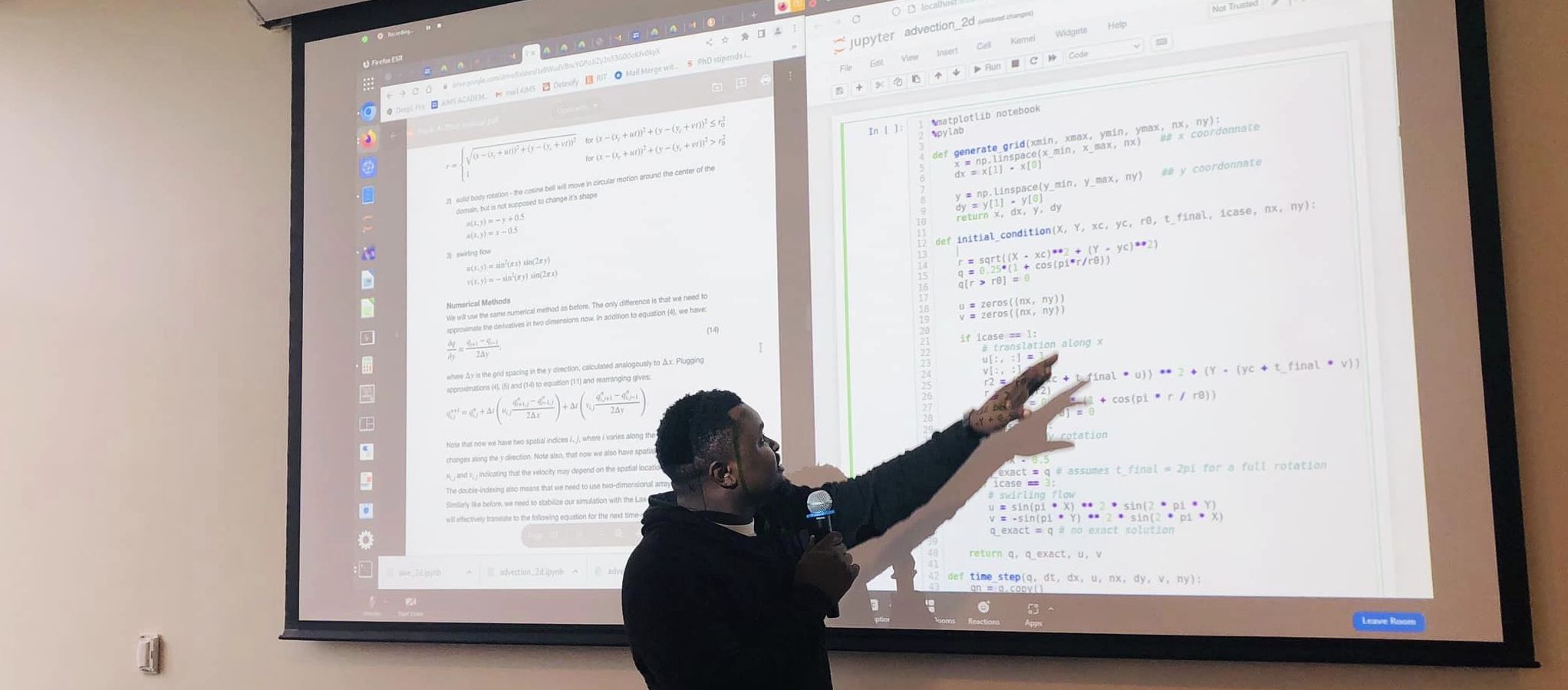
Twenty-four students from Uganda, Ghana, Cameroon, Botswana, Rwanda (who study at the African Institute for Mathematics and Science in Kigali, Rwanda), and the United States (Boise State’s Society for Industrial and Applied Mathematics Student Chapter — most are Ph.D. in Computing scholars who are originally from Africa) competed in blended teams of four with undergraduate and Ph.D. students so that team skills were equitably balanced, and none were disadvantaged by last mile network issues or time zone discrepancies.
The winning team chose the name “Byte Builders” to reflect their belief that technology is a universal language that can bring people together to solve problems and create something meaningful. The word “byte” acknowledges their shared language of digital information, while “builders” reflects their collaborative spirit and determination to build a better future through technology.
“Research Data as Art” and Poster Competition Winners
Ten “Research Data as Art” and six poster digital submissions from various departments were displayed in the Stein Luminary.
The Research Data as Art submissions ranged from systems of equations creating radial tie-dye-like patterns to visualizations of the reflectivity of the snow in the Boise mountains.
Gabriel Miles, a Chemistry undergraduate researcher, who submitted a rendered snapshot from a simulation of small molecule docking into a specific inflammatory cytokine won in the art category. This research aimed to find a drug to slow the progression of breast cancer metastasis. The posters ranged from malware detection using machine learning, to modeling ice and ocean interactions, to algorithm development.

The winning poster was created by Brian Kyanjo, a Ph.D. in Computing Student who also organized the Society for Industrial and Applied Mathematics Student Chapter Hackathon. His poster was titled, “GPU accelerated adaptive wave propagation algorithm”.
Winning Hackathon team members, best poster, and best Research Data as Art submitters will receive $50 gift cards from STEM-Trek Nonprofit. All Hackathon participants will receive AWS cloud credits donated by Amazon.